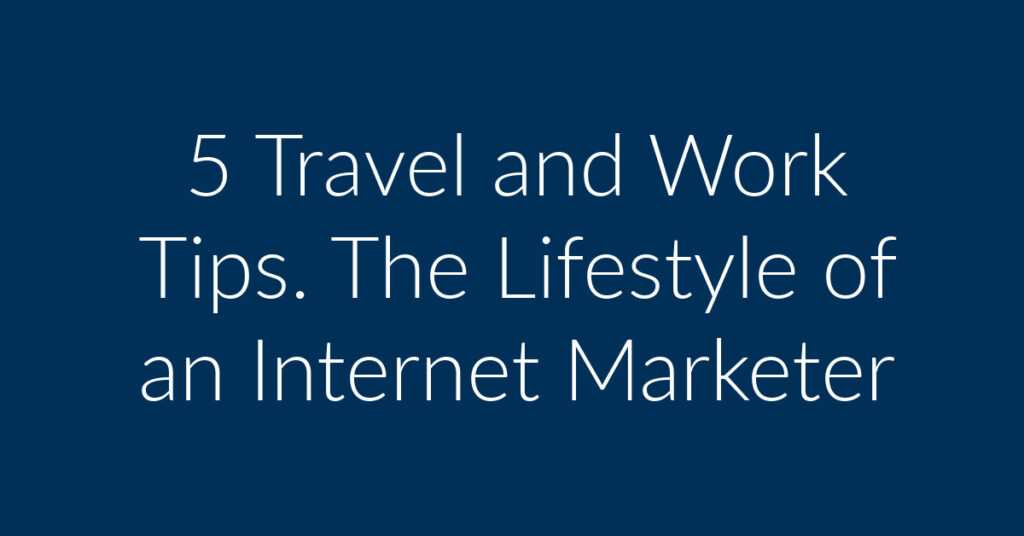Do you have a website, YouTube channel or a troop of loyal followers of Social Media? Are you thinking about monetizing these channels through affiliate marketing? Or perhaps, you are a brand that’s looking to get into affiliate marketing in order to increase your visibility on the marketing? Whatever the case, this article is for you. Hi, my name is Francisco, and I am the owner of Planet Marketing, a Digital Marketing Agency. My company specializes in Google Ads, Facebook Ads and Remarketing. I launched my domain over 20 years ago, and I have been in business ever since. Affiliate marketing is a topic that I understand REALLY well. That’s because I am an affiliate of other companies, whose products and services I sell via this blog. Not only that, but I also have Digital Marketing products that I sell through my own network of affiliates. So, you can be sure that I know what I am talking about here. I this article, I am going to;
- Define Affiliate Marketing.
- Show you who Affiliate Marketing is for.
- Give you the Affiliate Marketing basics from the point of view of a business looking to hire affiliates.
- Give you the Affiliate Marketing basics from the point of view of the affiliate.
Affiliate Marketing Definition
Affiliate Marketing is one of the drivers behind commerce in today’s world. But what is it and how does it work? The following is a brief definition of Affiliate Marketing;
Affiliate Marketing is a contract between an affiliate/publisher and a merchant/brand/business under which the affiliate undertakes to sell goods and services for a commission.
If you really wish to know more about how Affiliate Marketing works, feel free to check out the article in the provided link. All I can say here is that affiliate marketing is all about achieving defined goals. These goals can be anything, from getting people to sign up for a service, to selling products on the market.
Who is involved in Affiliate Marketing?

Here is the thing; read most of the articles that are out there about affiliate marketing, and you will be forgiven for believing that it’s basically all about the affiliate. There is content floating around on the internet telling you how to become an affiliate and how you can start an affiliate marketing business. However, the basic truth is that affiliate marketing is not solely about the affiliate. The following are all stakeholders in the affiliate marketing matrix;
- Brands: Affiliate marketing, first and foremost, is about a brand seeking to sell goods and services though a network of affiliates. In affiliate marketing, the brand is sometimes referred to as the merchant, vendor, retailer or product creator. This is the entity that comes up with the product or service. It can be easy, in any case, for the product to become lost in the noise that is affiliate marketing. But it’s really at the center of the entire process. Ultimately, the product needs to be good enough to make it in the crowded marketplace. It doesn’t mean, in any case, that the brand stops marketing once the services of affiliates have been engaged. Far from it! Affiliates are just one of the many avenues that are open to brands when it comes to selling products and services. The same company that’s engages the services of affiliates could also be using Google Ads, Social Media marketing, traditional advertising and other routes to reach out to customers.
- Affiliates: Affiliate marketing is also about the affiliate, of course. The affiliate is motivated by the desire to make money, and he signs up to become an ambassador for the brand. The affiliate is also known as the publisher. That’s because affiliate marketing depends on publishing networks that are created by the affiliate. These networks may be in the form of blogs, or in the form of YouTube channels. Affiliates also use social media to reach out to people. The common thread in all this is that the publisher needs to have reach. Publishers need to have access to the right kind of audience. Where this audience is relevant, it can effectively be used as a tool to sell goods and services for brands. The task, for affiliates is, therefore, to convince people to try out a particular product or service. But who do affiliates market to? Do they do it to the entire world? Well, that is hardly the case. The thing that makes affiliate marketing successful for the affiliate is that he or she has a specific audience that consumes content through his or her channel. Maybe the audience is composed of people who like a particular brand of music, or those that are engaged in one activity or the other. Being targeted means that the affiliate is better able to successful sell products and services on a brand’s behalf.
- The Affiliate Network: To be frank, affiliate marketing is entirely possible without affiliate networks. However, the process would be rather difficult. That’s because the affiliate would need to individually hunt down brands that have products that are relevant to their channel. This can be time consuming. The affiliate network makes it easy for the affiliate and the brand to find each other. They are, sort of a middle ground between the two. Though many people consider affiliate networks an unnecessary interposition in the entire process, affiliate networks remain relevant. If you are an affiliate, it’s likely that the only way that you are going to be able to promote some brands is through an affiliate network. There is a drawback to using an affiliate network, however. That’s because these networks get a share of the commission that an affiliate would otherwise have received from the merchant. However, the commission is usually not so much as to make the entire thing unprofitable on behalf of the affiliate.
- Consumers: Affiliate marketing is ultimately targeted at the consumer. To be frank, the consumer is most likely oblivious to the fact that he is the target in affiliate marketing. Whenever a sale is made, the profits are shared between the affiliate and the brand. This does not mean, however, that the consumer ends up paying more for goods and services. The competition is usually such that brands do not really have room to maneuver when it comes to pricing. In fact, there are instances where the consumer actually ends up paying less. I am personally an affiliate of Shopper Approved, a company that deals in online reviews. Because I have referred so many people to this company, I was able to negotiate a discount on behalf of my clients. Most affiliates out there are able to negotiate similar discounts or coupons on behalf of their customers.
You can be both a merchant and an affiliate
Another common misconception is that only individuals can become affiliates. That is not the case. Everyone who owns or operates a channel that attracts a fair amount of traffic can turn that traffic into income through affiliate marketing. This includes both individuals and businesses.
There is also nothing stopping a company from running its own affiliate marketing program while being an affiliate for other companies. That is what I do. My blog, planetmarketing.com attracts a fair amount of traffic. I mostly monetize this traffic through affiliate marketing.
Others monetize their publishing channels through AdSense, selling digital products, affiliate marketing and much more. There is nothing really stopping anyone from using all these monetization techniques at once to generate income from their sites. It’s not uncommon to find people out there who monetize their websites through both AdSense and affiliate marketing. I personally don’t do AdSense because you need to have huge amounts of traffic to make it work there.
How does affiliate marketing work?
So, how does affiliate marketing work? How does it all come together, between the brand, affiliate and the consumer? Well, here are a few pointers;
- A brand comes up with a product or service that it’s looking to put on the market. Personally, one of the products that affiliates who sign up for my program can sell is my Facebook Ads Marketing Course. This is just an example to help further clarify the point.
- The brand launches an affiliate marketing program. This can be done either in-house, or through affiliate networks. There are many affiliate networks out there. The best known of these are Commission Junction and Clickbank. It’s also possible for a brand to use both options, in which case it will have an affiliate program in-house and a presence on any of the affiliate networks that are out there.
- The publisher joins the affiliate marketing program, either directly, or through the affiliate network. The affiliate network is, therefore, the middle ground in the entire process. Though it’s possible for an publisher to get along just fine on his own, it’s much easier to find companies to promote at the centralized repository that is the affiliate network.
- Upon joining the affiliate marketing program, the publisher is given a unique link that he or she can use in promotional materials.
- The publisher then starts blogging, YouTubing of Facebooking about the company for which they have become an affiliate. Let’s say a publisher has signed up for an affiliate marketing program being run by a web hosting company. The publisher would then, as an example, begin blogging about the products and services that are being sold by the merchant.
- The affiliate places the link strategically in blogs, YouTube videos and other content that he produces. The link can also be shared on social media. It’s also possible to use email to get the link out to relevant people.
- When someone clicks on the link, a cookie is placed on that person’s computer. This cookie is used to identify the affiliate responsible for the referral and to make sure that they receive credit for making the reference.
- When a sale is made, the affiliate is paid an agreed to amount. This can be in the form of a once off payment or in the form of recurring payments. Most of the web hosting companies that are out there, as an example, pay referrers an average of $100 for references. However, most affiliates prefer the recurring payments model. That’s because once they have convinced a person to sign up, they continue to receive payments for as long as that person remains a paying customer for the brands. If you have ever dreamed of leaving your job and spending your life on the beach, then this is the model that you will, most likely, prefer. This kind of model is how most people build their passive income sources.
- Most merchants provide affiliates with the means of tracking the references that they have made. If you are an affiliate, you will be able to do so either through the affiliate network, or through your affiliate account dashboard with the company for which you are doing marketing.
Affiliate Marketing basics: The Brand
Now we come to the object of this article; what are the basics of affiliate marketing basics? We will begin by looking at affiliate marketing from the point of view of the brand looking to hire affiliates. So, what does the affiliate marketing process involve for the brand?
- Coming up with a saleable product: This is the first step for brands that wish to use affiliate marketing to generate sales. If you are looking to begin hiring the services of affiliates, you need to first have a product or service that you can sale. I have already given two such products; web hosting services and my own Facebook Ads marketing course. To be frank, there is no end to the kind of things that you can sell through affiliates. You can sell toys, vehicles, health care services and anything else. In most instances, if it can be sold, you can probably engage affiliates to help you push it onto the market.
- Finding affiliates: Once you have the product, you can then begin looking for affiliates who can do the selling on your behalf. We have already mentioned that you can run your own affiliate marketing program in-house. If that is the case, then you will need to find ways through which you can engage relevant people to sell your product. If you are blogger, you will probably occasionally get emails from brands that are looking for publishers in their niche to do marketing on their behalf. Alternatively, a brand can use an affiliate network to find relevant publishers who can market the product on their behalf. This is a much easier approach.
Affiliate Marketing basics: The Publisher

For the publisher, affiliate marketing is a means of earning an income. There are millions of people out there who survive or supplement their income through affiliate marketing. So what are the affiliate marketing basics for the publisher?
- The channel: The affiliate needs to first come up with a viable channel to make it work through affiliate marketing. I have already given some of the affiliate marketing channels that can be found out there. These include blogs, YouTube and social media. You can also capitalize on your networks to sell products and services to people via email. The thing to note is that the channel is really at the center of affiliate marketing. You cannot hope to succeed if you do not have a blog, a YouTube channel or a viable social network. That’s basically how it is! I personally use this blog to reach out to people.
- The content: Having a channel is, by itself, not enough to guarantee success for the affiliate. The most important thing is actually to come up with RELEVANT content. Content, it needs to be emphasized, is another key component in affiliate marketing. And that content needs to be relevant. I have already mentioned that affiliates need to be narrow minded to be able to make it through affiliate marketing. If you create a blog, you are unlikely to be successful if you blog about everything. People who succeed when it comes to affiliate marketing are usually those that focus on particular areas. An example would be to create a website that teaches people how to create Facebook Ads. This kind of focus answers a particular need. When people search for this service, it is likely that Search Engines will deliver your content to them. And therein lies the crux of the matter. Affiliate marketing relies heavily on search engines. If you are an affiliate, you will want to create content that resonates with the needs of the potential consumer. Not only that, but your content also needs to resonate with Search Engines. There are many Search Engine Optimization tricks out there. You should be cognizant of them when creating your content. Of course, SEO is not the only means of reaching out to your customers, but it is the primary means.
Rounding up!
Affiliate marketing, it has to be said, is the reason why the web is as it is today. Here is the thing, much of the content that’s out there is driven by the desire by publishers to generate income. Without this motivation, it’s highly likely that the world wide web wouldn’t be what it is today. I know, this is a controversial statement. But if you are a blogger, would you really blog without the prospect of some payout? I don’t know! Feel free to leave a comment below.



